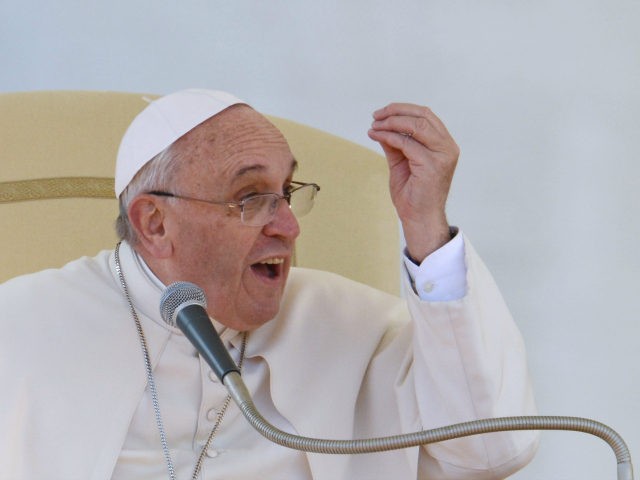ROME — The Vatican Press Office said Saturday evening the pope’s call for Ukraine to raise the “white flag” did not refer to surrender but rather the “courage to negotiate.”
“I think that the strongest one is the one who looks at the situation, thinks about the people and has the courage of the white flag, and negotiates,” Francis said during a recent interview with Radio Télévision Suisse (RTS), a portion of which was published Saturday morning.
The pontiff’s words were widely understood to refer to Ukraine’s surrender, drawing a fierce reaction from Ukraine’s foreign minister, Dmytro Kuleba.
“Our flag is a yellow and blue one. This is the flag by which we live, die, and prevail. We shall never raise any other flags,” Kuleba said on social media Sunday.
“The strongest is the one who, in the battle between good and evil, stands on the side of good rather than attempting to put them on the same footing and call it ‘negotiations,’” he stated.
According to Merriam Webster, “white flag” refers to (1) “a flag of plain white used as a flag of truce or as a token of surrender” or (2) “a token of weakness or yielding,” which suggests that Kuleba’s interpretation of the imagery appears corroborated by popular usage of the term.
For his part, Latvian president, Edgars Rinkēvičs, offered a similar reflection: “My Sunday morning take: One must not capitulate in face of evil, one must fight it and defeat it, so that the evil raises the white flag and capitulates,” he wrote Sunday.
In his clarification to reporters, Matteo Bruni, director of the Holy See Press Office, said that the pope “uses the term white flag, and responds by picking up the image proposed by the interviewer, to indicate a cessation of hostilities, a truce reached with the courage of negotiation.”
“Elsewhere in the interview, speaking of another situation of conflict, but referring to every situation of war, the Pope clearly stated: ‘Negotiations are never a surrender,’” Bruni added.

COMMENTS
Please let us know if you're having issues with commenting.